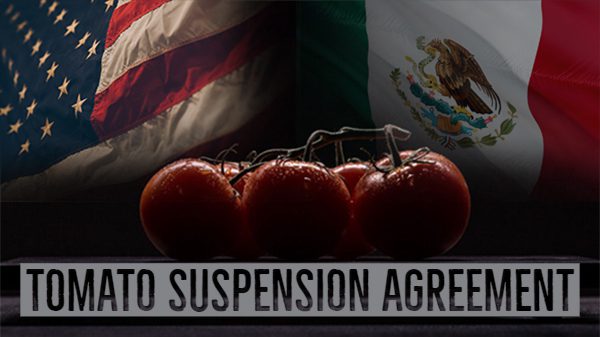The Mexican grower association CAADES filed suit against the U.S. Commerce Department in International Trade Court after its withdrawal from the 2013 tomato suspension agreement.
An attorney for the Mexican growers, Bob LaRussa of Shearman & Sterling LLP, Washington, DC, said May 14 his group has told the Commerce Department that it’s open to negotiation of the agreement, but the latest offer from Florida growers had stipulations they couldn’t accept.
The Florida Tomato Exchange said late May 10 that while the Mexican grower group rejected its latest proposal, it plans to keep working with the Department of Commerce on the agreement.
LaRussa said after the failed negotiation last week, the Mexican growers were forced to file suit May 9 with the first appearance in court expected later this week.
“We’d prefer to be selling tomatoes rather than litigating,” he said. “In the meantime, those who are suffering will be U.S. buyers and consumers.”
He said in last week’s negotiations with Florida, the Mexican growers agreed to many of Florida’s provisions, including:
-quality inspections at the U.S.-Mexico border;
-prices increases for Mexican tomatoes of up to 170 percent;
-giving the Commerce Department sales and contract data; and
-linking the tomato agreement to PACA penalties.
However, LaRussa said one provision, that U.S. buyers wouldn’t be reimbursed for costs of rejection of defective tomatoes, may violate PACA, and it would also punish buyers.
“Their allegation is that when product is supposed to be destroyed, it stays in the market below reference price,” LaRussa said. “Florida also buys and distributes Mexican tomatoes, so my guess is that they want to determine who distributes Mexican tomatoes.”
In the lawsuit, the Mexican growers seek judicial review for three actions taken by the Commerce Department: suspending Mexican fresh tomato sales without a duty; resuming the anti-dumping investigation; and instructing U.S. Customs to require a cash deposit for each entry of fresh tomatoes from Mexico.
The growers say in the suit that since the suspension agreement in 2013, they have been in full compliance with its terms. Over a six-year period, out of more than 50 billion transactions, the Commerce Department has documented 62 violations or 0.0001 percent.



